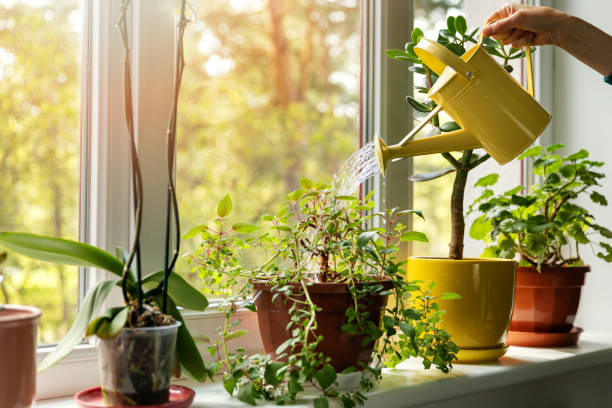
FAQ About Plant Care
Plant Care
2 years ago | gizem
How do I prevent root rot in my plants?
To prevent root rot in your plants, it's important to focus on maintaining proper watering practices and providing suitable growing conditions. Here are some tips to help prevent root rot:
- Well-draining soil: Use a well-draining potting mix that allows water to flow freely through the soil and prevents water from pooling around the roots. Avoid heavy soils that retain excess moisture.
- Adequate drainage: Ensure that your plant pots have drainage holes at the bottom to allow excess water to escape. Avoid letting plants sit in standing water, as it can lead to root rot.
- Proper watering practices: Water your plants appropriately, taking into account their specific needs. Avoid overwatering, as it is the leading cause of root rot. Allow the top inch or two of soil to dry out before watering again. Use the finger test to check soil moisture.
- Watering frequency: Adjust your watering frequency based on the season, environmental conditions, and the plant's growth stage. Plants generally require less water during the dormant or cooler months.
- Watering technique: Water plants at the base, directly onto the soil, rather than overhead watering. Avoid splashing water onto the foliage, as it can promote fungal growth and create conditions for root rot.
- Proper pot size: Choose an appropriately sized pot for your plants. A pot that is too large for the plant can hold excessive moisture, increasing the risk of root rot. The pot should have enough space for roots to grow but not be excessively oversized.
- Remove excess water: If you accidentally overwater your plants or if there is excess water in the saucer or tray, remove it promptly to prevent the roots from sitting in water.
- Monitor and adjust: Regularly monitor the moisture levels in the soil and adjust your watering practices accordingly. Each plant has different water requirements, so understanding the needs of your specific plant species is crucial.
- Healthy roots: Prioritize plant health by providing proper light, appropriate fertilization, and maintaining good overall plant care. Healthy plants with strong roots are better equipped to resist and recover from potential root rot.
- Quarantine and treat: If you notice signs of root rot, such as a foul odor, mushy roots, or wilting foliage, quarantine the affected plant to prevent the spread of disease. Trim away any affected roots, repot the plant in fresh, well-draining soil, and adjust your watering practices.
